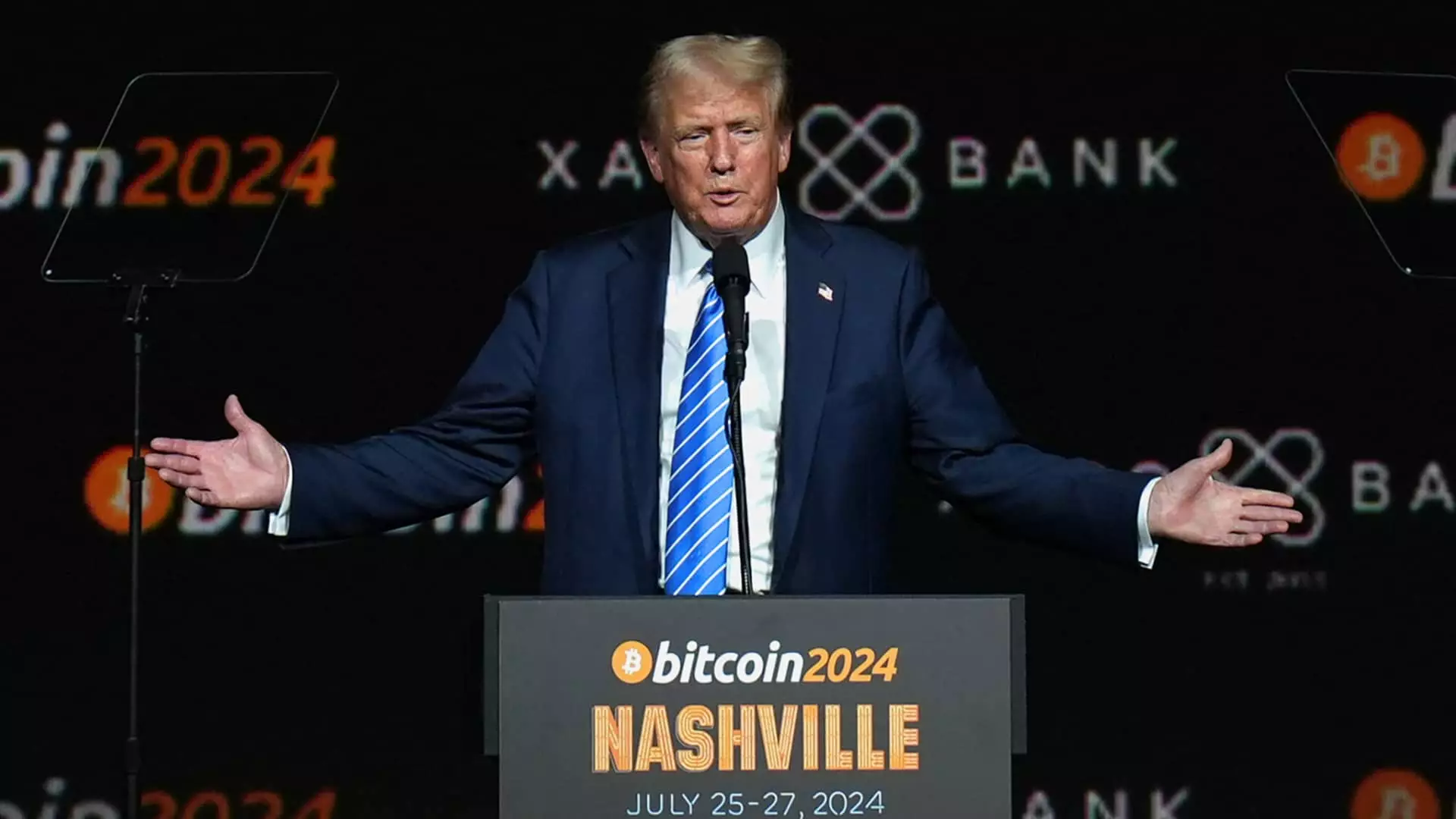The launch of Donald Trump’s cryptocurrency initiative, World Liberty Financial (WLF), marks a significant intersection of politics and finance. As Trump prepares for a potential presidency run, this venture raises several critical questions about the ethics of blending political ambitions with profit-seeking undertakings in the digital asset marketplace. The recent publication of a 13-page document outlining WLF’s objectives and token allocation offers a glimpse into the operational framework and potential conflicts of interest surrounding this project.
WLF asserts that its structure is designed to facilitate a vibrant ecosystem of digital assets, branding itself as a “crypto bank” where users can engage in a plethora of financial activities such as borrowing, lending, and investing in digital currencies. The strategic plan includes the distribution of its $WLFI tokens, amounting to 22.5 billion, which are valued at approximately $337.5 million. However, the disparity between the projected market potential and the current sales figures—only $12.9 million raised by Thursday—hints at the complexities involved in attracting investors to a politically tinted cryptocurrency.
The operational outline provided in the document details the allocation of revenues, indicating a hefty 75% of net protocol income is directed toward an affiliated entity tied to Trump. This arrangement raises salient questions about the financial motivations at play. Not only does this further intertwine Trump’s political career with profit motives, it also positions him and his family potentially to reaps immense financial rewards from a venture that boasts no political affiliations.
The token distribution strategy announced by WLF illustrates a carefully curated financial structure but also reflects the often murky waters within crypto finance. The paper outlines a breakdown where 35% of the total supply is allocated for sale, while an additional 32.5% is aimed at community growth and incentives. The figures reveal that only a mere 2.5% is designated for team and advisors, raising ethical questions about the role of founding members, namely Trump and his family, relative to the broader investor base.
The preemptive caveat in the fine print that these distributions are “subject to change” renders the distribution’s finality questionable. Investors drawn in by the promise of community involvement may find themselves outpaced by more lucrative allocations reserved for those with insider connections, emphasizing an aspect of crypto culture that frequently leads to frustration among average investors.
Another critical layer to the WLF project is the absence of direct accountability from Trump and his family, as stated in the release. Their non-employee status creates a facade of insulation from potential legal repercussions stemming from financial improprieties or mismanagement of funds. This separation could be interpreted as a tactic to limit legal exposure should the venture falter or face scrutiny from regulators, especially as the cryptocurrency space grapples with increasing oversight.
The allocation of revenue to various LLCs – notably those linked to political estate friends, such as Steve Witkoff – blurs the lines between political contributions, personal gain, and legitimate business operations. It is a familiar narrative within crypto ventures, but its emergence within a politically charged environment suggests a complicated dance between access, influence, and wealth accumulation.
As World Liberty Financial embarks on its ambitious cryptocurrency journey, the intertwining of political motives and financial governance remains a focal point of concern. Understanding the implications of this project requires not merely an analysis of the financial mechanics at play but also a keen awareness of the ethical landscape that governs such endeavors. With future developments in regulatory frameworks and the evolving narrative surrounding crypto in politics, WLF stands at a pivotal juncture. Stakeholders, investors, and the public alike must navigate these waters with a critical eye, questioning the balance between innovation and accountability in an increasingly digital financial world.


Leave a Reply